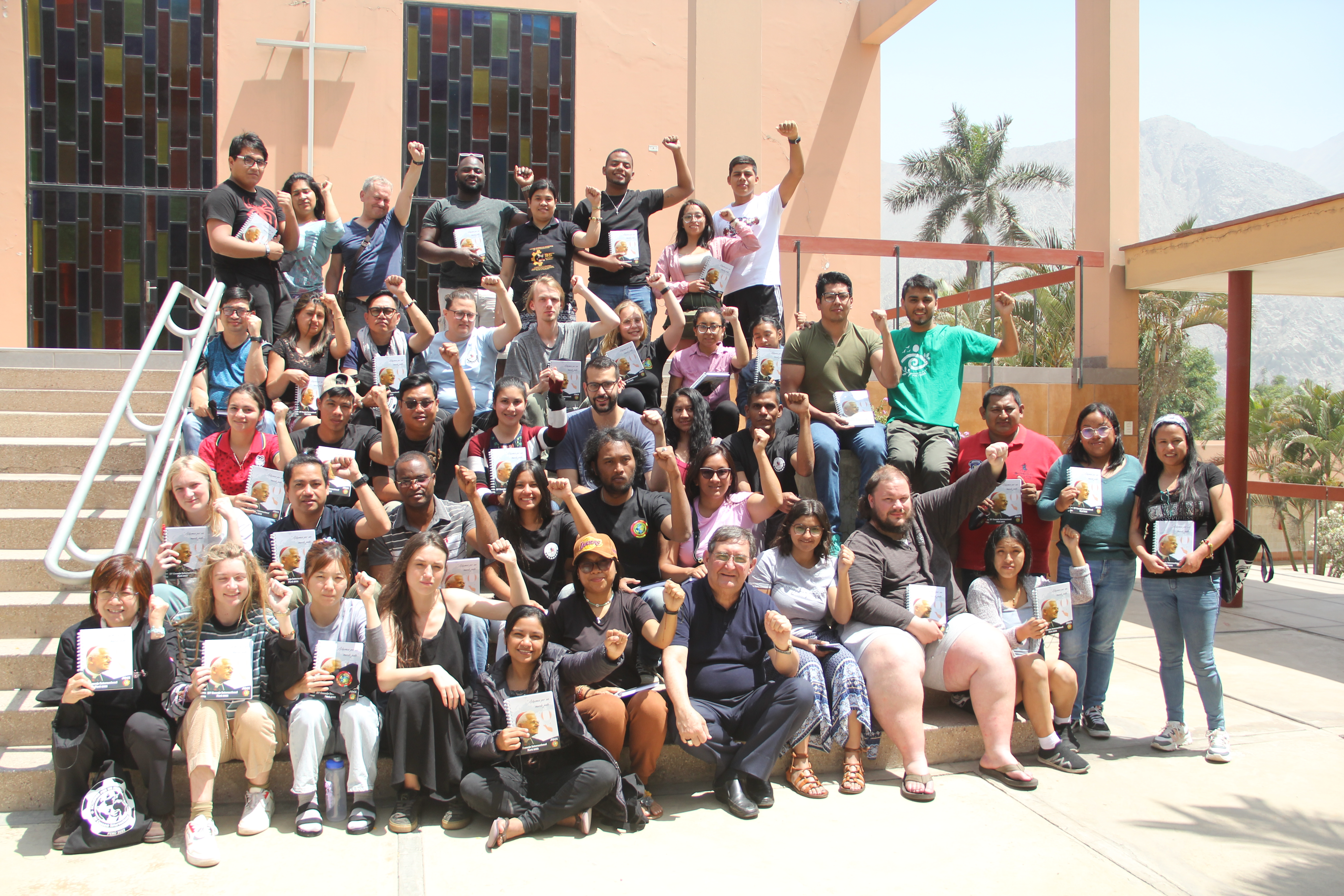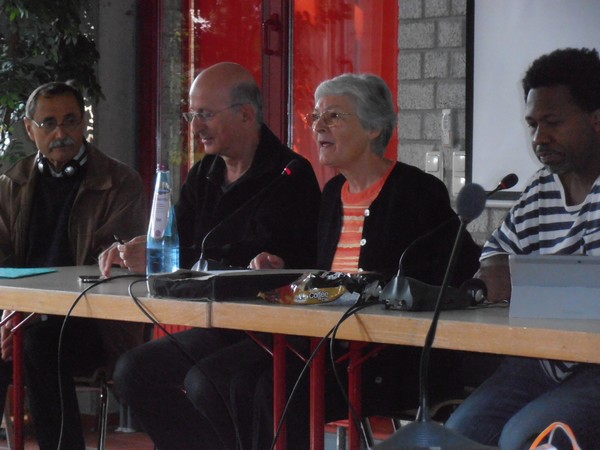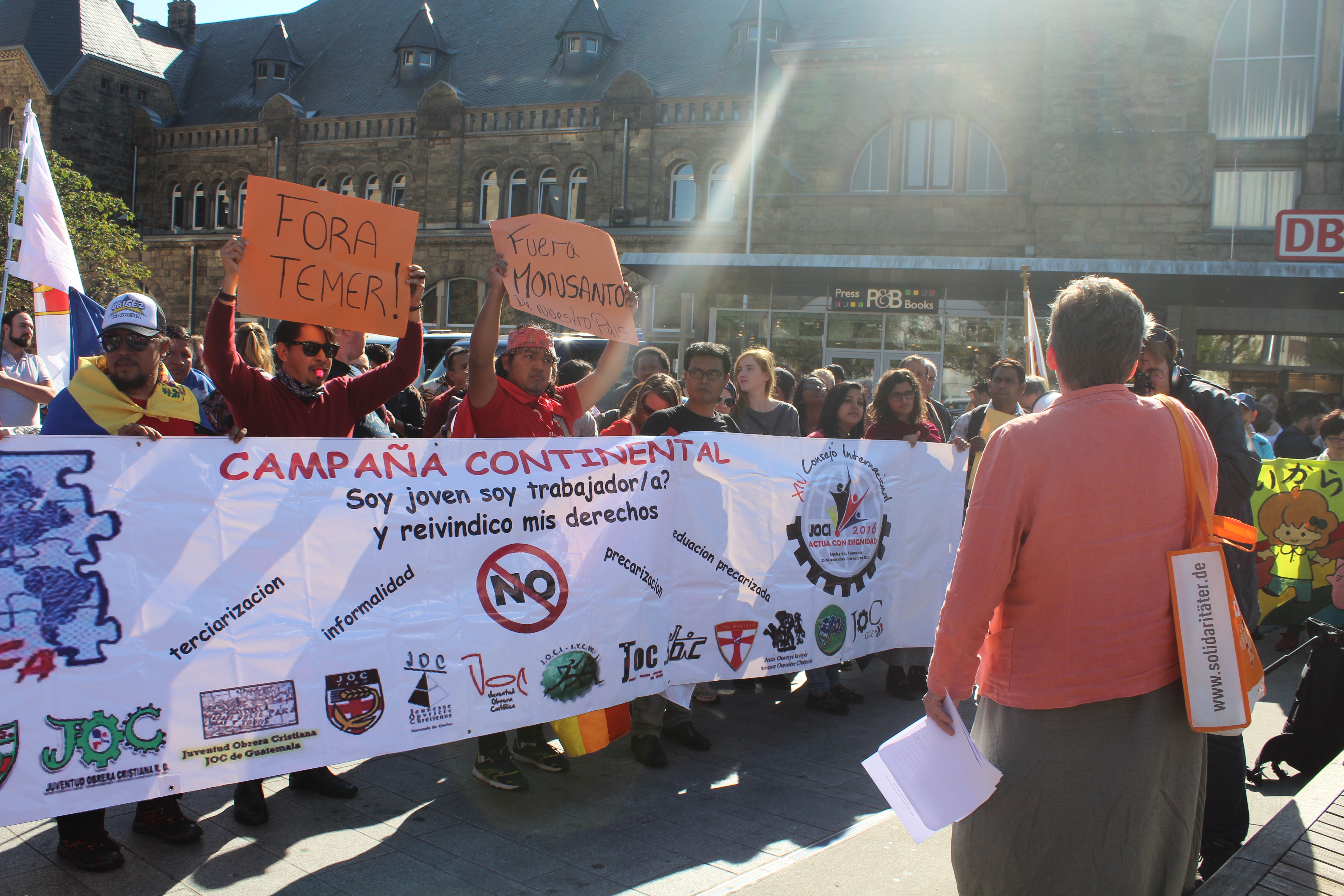
On the 23d of October 2022, the IYCW held the public opening of its 15th International Council in Peru as a symbolic show of unity of the struggles of the young workers organized by the movement. The context in which this international council took place was characterized, on the one hand, by the tide and ebb of the Covid19 pandemic and its various consequences on the people, such as the increase of unemployment and social inequalities. It was also marked by the great complexity of the international economic, cultural and political tensions between the current super industrial powers which even led the world to international armed conflicts. On the other hand, this council provided an opportunity to highlight the growing mobilization of the people, especially of the youth who were longing for a more just and fraternal world, as Pope Francis puts it, and for a more serious concern for their environment.
This important event took place in Casa de Retiro San Francisco de Asis in Lima. The public opening began with a wonderful cultural ritual performed by an indigenous woman from Peru who helped the participants connect with Mother Earth, Pachamama, and our ancestral spirituality. This was followed by the Eucharistic celebration, presided over by Dom José Reginaldo Andrietta, bishop of the Diocese of Jales in Sao Paulo Brazil, who was himself a former international chaplain to the IYCW. Bishop Reginaldo Andrietta was assisted by Father Alejandro Cussinavich, chaplain to the Peru YCW, and Fathers Santiago and Humberto Boulango from Peru.

The YCW is very close to completing its 100 years of existence, but before this glorious date, it was able to hold its 15th International Council in Peru from 27 October to 7 November 2022. It took place in a very special context because, like all organizations, the YCW has been very affected by the pandemic: unable to travel, the leaders of the movement, and sometimes even the grassroots groups, had to reorganize themselves, to move to virtual meetings as much as possible, and therefore to postpone the dates of the International Council twice. It was therefore unique and wonderful to be able to hold the Council this year.
Delegations from all continents and regions participated: North America, Central America and the Caribbean, South America, Western Europe, North and Central Africa, East and South Asia, and Oceania. For visa or other reasons, some delegations participated virtually. The council was also attended by former IYCW activists and representatives of the International Cardijn Association who, together with the activists present, did their best to collaborate to the smooth running of the council.
- Details

On the occasion of the XIV International Council of the International Young Christian Workers (IYCW), current and former leaders of the YCW movement gathered in Herzogenrath, near Aachen, Germany, from 24th till 26th September for the IYCW International Colloquy, aimed at developing cooperation between the various generations of YCW leaders.
Click here to see photos of the Colloquy and of the opening of the Council.
On the first day of the Colloquy, former YCW leaders could hear the main challenges facing IYCW today. IYCW president, Ludovicus Mardiyono, and treasurer Andy Predicala, shared their reflections on the needs and challenges faced by the movement today.
- Details

The International Council of the International Young Christian Workers was a timely event organized by its activists every 4 years to identify where the movement is today, and how it will go forward. Our fast-evolving world has generated closer interaction among people but it has created different situations in every country and continent. These developments have had consequences and impact in the world of work, affecting thousands of workers, and young workers in particular.
The three-week activity started on September 21 and ended on October 9, 2016. It began with the exchange program hosted by YCW Germany, YCW Wallonia and YCW Flanders in 5 key cities in Europe, namely Brussels, Liege, Aachen, Munster and Wurzburg. 27 national movements took part in it, interacting and interchanging information about different realities of the young workers today: precarious work, temporary workers, migrants, refugees, unemployed, informal workers and gender discrimination at work.



